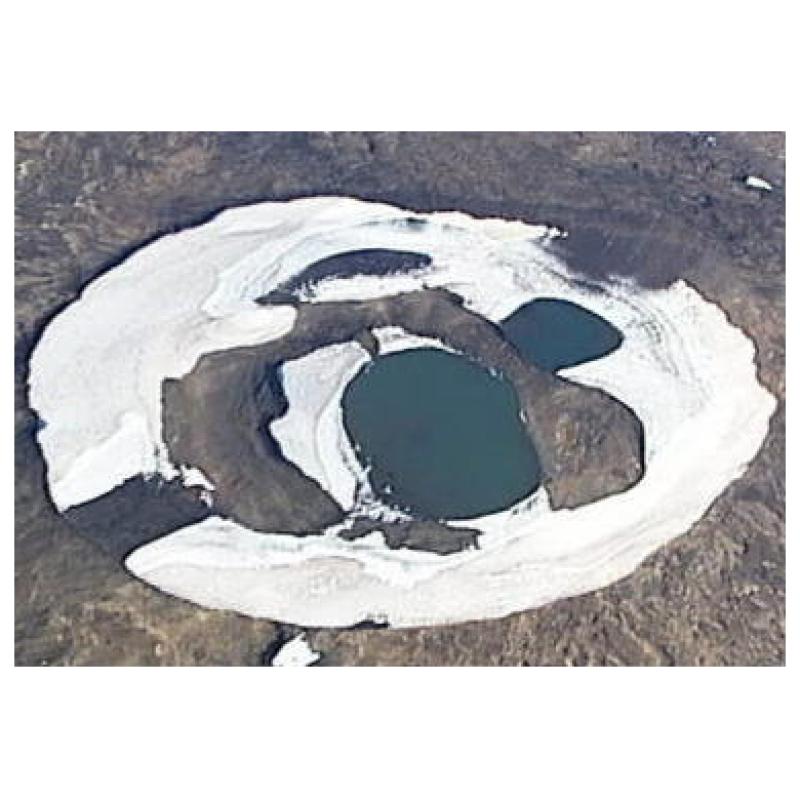Icelandic memorial warns future: ‘Only you know if we saved glaciers’




The plaque for Okjökull, which has shrunk to less than 1 sq km of ice and lost its status as a glacier.
Rice University
The former Okjökull glacier, which a century ago covered 15 sq km (5.8 sq miles) of mountainside in western Iceland and measured 50 metres thick, has shrunk to barely 1 sq km of ice less than 15 metres deep and lost its status as a glacier.
Researchers from Rice University in Houston, Texas, a leading Icelandic author, Andri Snær Magnason, and the geologist Oddur Sigurðsson will lead the unveiling ceremony at the site in Borgarfjörður on 18 August, local media said .
“In the next 200 years, all our glaciers are expected to follow the same path,” the plaque reads, in Icelandic and English. “This monument is to acknowledge that we know what is happening and what needs to be done. Only you know if we did it.”

The former Okjökull glacier.
Rice University
A glacier is defined as a persistent mass of compacted ice that accumulates more mass each winter than it loses through summer melt and is constantly moving under its own weight. When this ceases to be the case, the remains are known as “dead ice”.
Cymene Howe, an associate professor of anthropology at Rice, said the plaque “would be the first to a glacier lost to climate change anywhere in the world”. Marking the moment should draw attention to what is being lost, she said.
With her colleague Dominic Boyer, Howe has been studying the economic and cultural impact of global heating and ice shrinkage on Icelandic communities. “These bodies of ice are the largest freshwater reserves on the planet,” she said.
“Frozen within them are histories of the atmosphere. They are also often important cultural forms that are full of significance.”
Boyer said Okjökull’s fate “will be shared by all of Iceland’s glaciers unless we act now to radically curtail greenhouse gas emissions”.
The far north of the globe has been warming twice as fast as the rest, helping this June become the hottest ever recorded. Scientists have said a sharp rise in Arctic temperatures is inevitable, potentially creating a climate “tipping point”.
With the former mayor of Reykjavik Jón Gnarr, the two US researchers produced a documentary, Not Ok, about the glacier’s disappearance last year, in an effort to show how the climate crisis is affecting ordinary people’s lives.
“An Icelandic colleague said: ‘Memorials are not for the dead; they are for the living,’” Howe said. “We want to underscore that it is up to us, the living, to respond to the rapid loss of glaciers and the ongoing impacts of climate change. For Ok glacier it is already too late.”
Tags




Who is online
55 visitors
